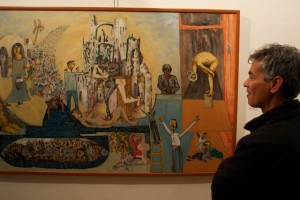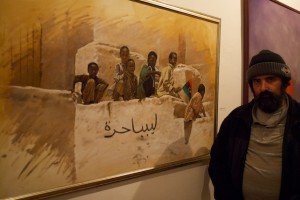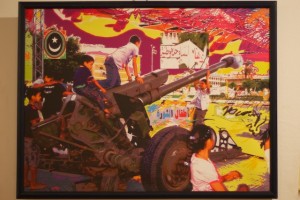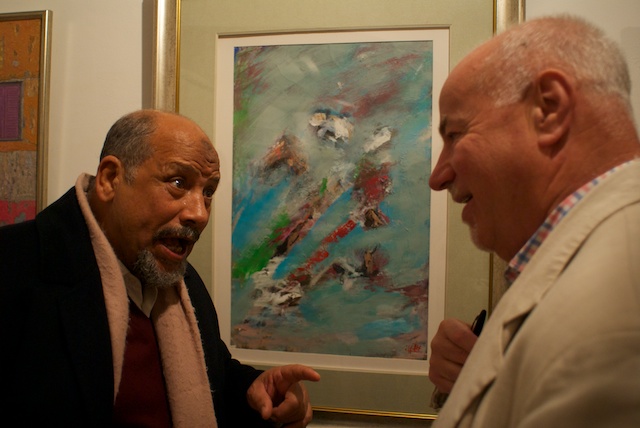
The first exhibition of paintings and works of art since the revolution opened in Tripoli’s Dar Al-Fanoun (Art House) on Thursday, 23 February. The three-day exhibition, entitled “Artists’ Spring”, features works by 56 artists, all Libyans.
A number are related to liberation, though not all. None was for sale. The objective of the exhibition was to show what Libyan artists had been doing over the past year and how they had been affected by the events of the Arab Spring, in Libya and elsewhere.
One work by Fawzi Al-Swei, who studied painting and film-making at the San Francisco Art Institute, shows six boys sitting on a wall with the Libyan tricolor flag and on the wall the words “Free Libya” scrawled in Arabic. The painting, only finished the morning of the exhibition, was in fact started in Tripoli last April when the city was still very much under Qaddafi’s control. It demonstrates clear political aspirations at the time but which had to be hidden.

It is also highly topical now. The six boys are all Tebu, a people who generally live in the south of Libya. The current bloody clashes in the south-eastern town Kufra are between are the black-skinned Tebu minority (who also live in Chad and Niger) and the majority Arab Zway tribe, and have been presented in some quarters as part of a Tebu separatist move. In the painting, however, the Tebu boys are shown as very much part of the new Libya.
Another work, a photo montage by Taher Maghrebi, created two months ago, again features children as a reference for the new Libya. They are playing on a tank. The contrast is intended “It is a machine of war but children are paying with it,” explained Taher. It symbolised the notion that, with victory, the oppression and fear that once existed had disappeared.

The exhibition was organised by the gallery’s Imad Bashaga in collaboration with the Ministry of Culture.

Dar Al-Fanoun was opened in 1992 by Khalifa Mahdawi. It exhibits both local and international artists it also and acts as an art development centre, helping young artists by introducing them to established ones and getting them to work together in workshops. [/restrict]








